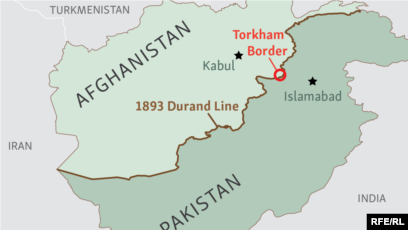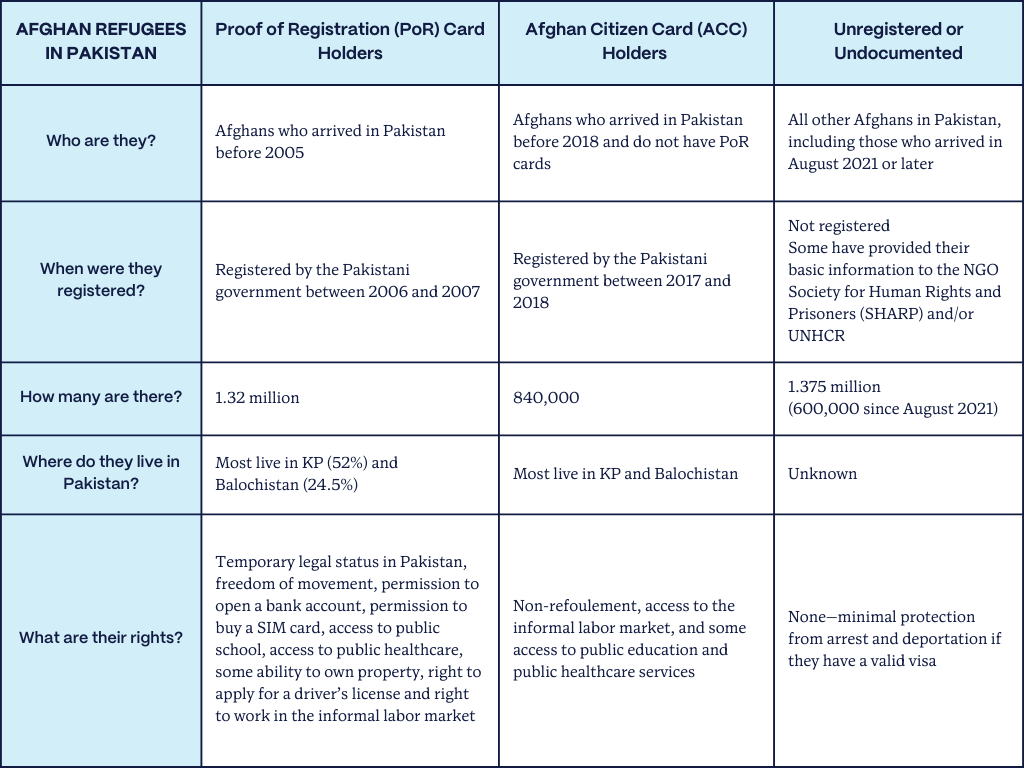Pakistani Government’s Refugee Expulsion: A Humanitarian Crisis Unfolding
Here is the compressed form of today’s Dawn e-paper opinion titled Scapegoating the Refugee which is about the Afgan refugees. Here is the link to the parent article:
https://www.dawn.com/news/1790340
Introduction:
The recent expulsion of over 1.7 million Muslim refugees from Pakistan draws stark parallels to historical instances of mass displacement, surpassing even the evictions during the 1948 Palestinian exodus. The compliant caretaker government’s stringent stance on undocumented Afghan refugees has escalated into a dire humanitarian crisis.

Ruthless Expulsion Policies
The declaration by the Balochistan caretaker information minister to expel even documented Afghan individuals underscores the gravity of the situation. This abrupt expulsion, irrespective of legal documentation, exhibits a stark display of state authority, revealing the severity of the government’s resolve.
Tragic Plight of Displaced Refugees
For these unfortunate individuals, the prospect of returning to a homeland they may have never known is overshadowed by the harsh reality awaiting them. The abruptness of the eviction, allowing only a brief 30-day window to liquidate belongings and restricting cash carriage, compounds the agony of displacement. The prohibition on transporting livestock further compounds the heartlessness of the situation.
Harrowing Prospects Beyond Borders
The imminent fate of these displaced individuals upon crossing the Torkham border is distressing. They face the prospect of entering a territory governed by a regressive militia hostile to modernity, repressing fundamental rights—no education for girls, limited opportunities for women, and prohibitions on arts and music. The return to archaic forms of punishment, like limb-chopping and stoning, paints a dire picture of the situation awaiting them.
The Legacy of Pakistani-Afghan Relations
Pakistan’s historical recognition of the Taliban in 1996 and its subsequent support, despite their egregious actions, sheds light on the complexities underlying this current crisis. The strategic depth doctrine, aimed at securing influence in Afghanistan, has backfired, resulting in the victimization of Afghan refugees.
Geopolitical Dynamics: Impact on Pakistani-Afghan Relations
The shift in Afghanistan’s governance, from the Ashraf Ghani regime’s televised celebrations to the current complex situation, underscores a stark transformation in the region’s dynamics. The aftermath of victory often witnesses an amplification, rather than a reduction, in the force of fanaticism. This resurgence is evident in the Tehriki-Taliban Pakistan’s (TTP) intensified attacks on Pakistan’s security forces, supported by the Afghan government, creating a perilous scenario.
Shared Mindset, Shared Challenges
The entwined interests and shared ideology between the TTP and Afghan Taliban have complicated matters, hindering Pakistan’s attempts to mitigate the growing terrorist threats. Despite Pakistani authorities’ efforts to seek cooperation from Afghanistan against terrorist acts, the absence of condemnation from Kabul echoes the alignment in mindset and goals between these extremist factions.
Blaming the Innocent: Refugees as Scapegoats
The scapegoating of Afghan refugees for providing a base to TTP terrorists deflects attention from historical lapses in security measures. This blame-shifting tactic, driven by past foreign policy missteps and the ill-conceived notion of strategic depth, unjustly targets vulnerable refugees who sought sanctuary in Pakistan following the Taliban’s resurgence in 2021.

Complicity and Policy Failures
The emergence of TTP in Swat under the surveillance of Pakistani security forces reveals past oversights and potential complicity. The missed opportunity to neutralize figures like Maulana Fazlullah, known as Mullah Radio, during the group’s inception exemplifies the consequences of policy indecision and inadequacies in countering ideological extremism.
Realigning Counter-Terrorism Strategies
Pakistan’s purported commitment to combating ideologically driven terrorism necessitates a recalibration of approaches. The focus should redirect toward dismantling areas fostering jihadist sentiments, acknowledging that the era of external funding for ‘jihad’ has concluded. This realignment demands a strategic shift from targeting penniless refugees to addressing the breeding grounds of extremist ideologies.
The Dichotomy in Addressing Extremism and Ideological Frontiers
The control exerted by states across the Muslim world over religious figures, often termed ‘mullahs,’ stands in stark contrast to Pakistan’s reluctance to scrutinize madrasahs propagating violence. Maulana Abdul Aziz’s overt alignment with TTP, despite his role in the Lal Masjid insurrection, raises pertinent concerns as he freely operates under armed escort in Islamabad.
Ideological Underpinnings and Hollowing of Principles
The sudden deportations justified in the name of defending Pakistan’s ideological frontiers inadvertently undermine the foundational Islamic premise of the nation. This action contradicts the principles upon which Pakistan was established, risking a hollowing out of its fundamental tenets.
Jinnah’s Vision and Ethnic Unity
Revisiting the historical backdrop of the mid-1940s offers insight into Jinnah’s strategic approach. In a bid to unite the diverse Muslim communities, particularly in the Frontier, against ethnic divisions, Jinnah emphasized Islamic unity over regional identities. His stance, as documented in the Jinnah Papers, emphasized prioritizing Muslim identity over ethnic affiliations.
Unity Across Arbitrary Boundaries
Jinnah’s vision extended beyond arbitrary lines, such as the Durand Line, recognizing the unity among closely-knit Pakhtun families living on both sides. His advocacy for the free movement of Pakhtunsacross the Durand Line underscored the incongruity of restricting individuals based on geographic delineations within the Muslim community.
Incongruity in Citizenship and Identity
The paradox of how individuals from distant regions could become Pakistani citizens while those residing across an arbitrary demarcation faced barriers challenges the coherence of these restrictions. Jinnah’s strategic alignment with the Muslim identity rather than ethnic divisions facilitated his rapport with the Pakhtun populace.
Navigating the Afghan Refugee Dilemma in Pakistan: Balancing Realities and Rights
The complexities surrounding Afghan refugees in Pakistan highlight the inherent contradictions within a nation established on religious identity. While acknowledging the challenges, it’s crucial to strike a balance between accommodating genuine needs and respecting the sentiments of the local populace.
Balancing Sovereignty and Humanitarianism
Pakistan’s stance, acknowledging limitations in absorbing all Muslim migrants while also realizing the impact of mass deportations, represents a delicate balance. The tensions in regions like interior Sindh underscore the socio-cultural clashes between indigenous communities and newcomers, reminiscent of challenges witnessed by Pakistani migrants in Europe.
Realities of Migration and Cultural Impact
Migration, a global phenomenon, brings both advantages and challenges. The influx of conservative cultures among migrants often raises social tensions and presents societal challenges, including instances of crime. Acknowledging these realities is crucial, both in the context of Afghan refugees in Pakistan and Pakistani migrants in Europe.
The Imperative of Human Rights and Dignity
Amidst these complexities, upholding universal norms that safeguard human rights and dignity remains non-negotiable. Simplifying the documentation process, ensuring equal rights for individuals born in Pakistan, and safeguarding vulnerable groups—especially girls and women—from oppressive regimes should be paramount.
The Need for Sensitive, Scientific Management
Recognizing that open borders remain a distant ideal, a pragmatic approach necessitates sensitive and scientific management of migration. Europe’s ongoing learning curve in managing migration underscores the complexity and absence of clear-cut solutions.
Upholding Basic Principles: Equal Rights and Asylum
The minimum ethical standard demands that individuals born in Pakistan be granted citizenship with equal rights. Those at high risk must be offered asylum rather than facing deportation, aligning with universal norms of human rights protection.
In conclusion, addressing the Afghan refugee predicament in Pakistan requires a delicate balance between the realities of migration, societal tensions, and the imperative of upholding human rights and dignity. Simplified documentation, equal citizenship rights, and providing asylum to vulnerable individuals are fundamental steps toward a more humane and just approach.
Difficult words:
- Inadvertently: Unintentionally or without realizing.
- Paradox: A seemingly contradictory statement or situation that may reveal the truth.
- Entwined: Intertwined or closely connected.
- Scapegoating: Blaming or holding responsible unjustly.
- Delicate: Fragile or sensitive, requiring careful handling
Credit :Farhan Khan



CSS Punjabi Complete Guide With the Book,Notes,Solved MCQs,Past Papers
CSS Chemistry Fundamentals: A Comprehensive Guide for Students
Your Ultimate Guide to FIA Exams in Pakistan
CSS and PMS Precis Writing Rules with Complete Guide
How to read the newspaper for CSS/PMS
Strategies to Score High in Political Science Exam
CSS and PMS Exams: Your Questions Answered
Computer Science Strategies for CSS: Your Ultimate Prep